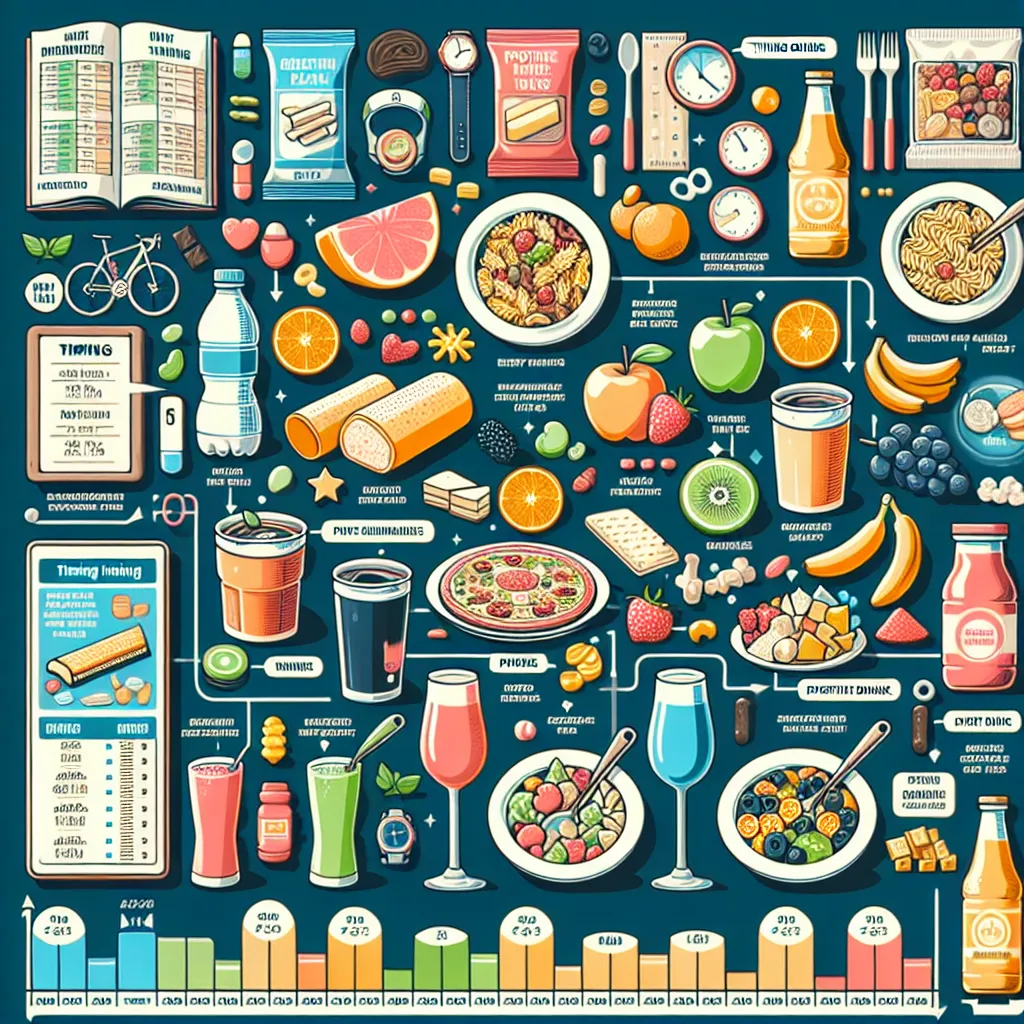Race nutrition is a crucial concept in sports science and endurance athletics. Let’s explore this term to enhance your IELTS vocabulary and boost your exam performance.
Definition and Pronunciation
Race nutrition (noun phrase)
/reɪs njuːˈtrɪʃən/
Definition: The practice of consuming appropriate foods and fluids before, during, and after a competitive athletic event to optimize performance and recovery.
Context and Usage
Examples in Context
-
Race nutrition strategies vary depending on the length and intensity of the event.
Analysis: This sentence introduces the concept that race nutrition is not a one-size-fits-all approach, but rather tailored to specific race conditions. -
Proper race nutrition can make the difference between finishing strong and hitting the wall during a marathon.
Analysis: Here, the phrase emphasizes the crucial role of nutrition in determining race outcomes, particularly in endurance events. -
Athletes often experiment with different race nutrition plans during training to find what works best for them.
Analysis: This example highlights the importance of personalization and practice in developing an effective race nutrition strategy. -
Inadequate race nutrition can lead to dehydration, fatigue, and decreased performance.
Analysis: This sentence illustrates the potential negative consequences of neglecting proper nutritional practices during races. -
Sports nutritionists specialize in creating race nutrition plans tailored to individual athletes’ needs and preferences.
Analysis: This example introduces the professional aspect of race nutrition, indicating that it’s a specialized field within sports science.
Common Contexts
Race nutrition is frequently discussed in contexts related to:
- Endurance sports (marathons, triathlons, cycling races)
- Sports science and exercise physiology
- Athletic performance optimization
- Dietary planning for athletes

Frequency in IELTS
The term “race nutrition” may appear in IELTS Reading passages related to sports science or health. It’s less likely to be a focus in Writing or Speaking tasks but could be relevant in Task 2 essays about health or athletics. Understanding this concept can help you comprehend complex texts and articulate ideas about sports and nutrition more effectively.
Vocabulary Analysis
Word Structure
- Race (noun/verb): A competition of speed
- Nutrition (noun): The process of providing or obtaining food necessary for health and growth
When combined, these words create a specialized term referring to the nutritional practices specific to racing or competitive events.
Synonyms and Related Terms
- Sports nutrition
- Performance fueling
- Endurance diet
- Athletic nutrition
- Competition fuel strategy
Memorization Techniques
Mind Mapping
Create a mind map with “Race Nutrition” at the center, branching out to:
- Pre-race meals
- During-race fueling
- Post-race recovery
- Hydration strategies
- Energy gels and bars
- Electrolyte balance
Visualization
Imagine a runner passing through different stages of a race, consuming specific foods and drinks at each point. This mental image can help reinforce the concept and its components.
Practice Exercises
Application in Sentences
- Write a sentence explaining why race nutrition is important for marathon runners.
- Describe a potential race nutrition plan for a cyclist participating in the Tour de France.
- Compare and contrast race nutrition needs for a sprinter versus a long-distance runner.
IELTS-Style Task
Write a paragraph discussing the impact of proper race nutrition on athletic performance. Use at least three related terms or concepts in your response.
Conclusion
Mastering the concept of race nutrition not only enhances your IELTS vocabulary but also provides valuable insights into sports science and athletic performance. By understanding this term and its related concepts, you’ll be better equipped to tackle reading passages, write comprehensive essays, and engage in discussions about sports and nutrition in the IELTS exam.
Remember to practice using this term in various contexts and review it regularly to ensure long-term retention. If you have any questions about race nutrition or how to use it in your IELTS preparation, feel free to ask in the comments below!
To further expand your knowledge on related topics, check out our articles on nutritional supplements and sports hydration, which complement the concept of race nutrition in athletic performance.